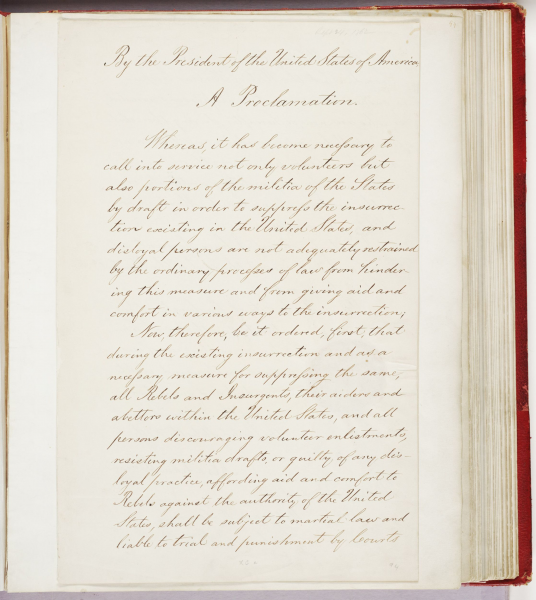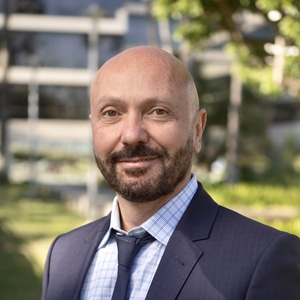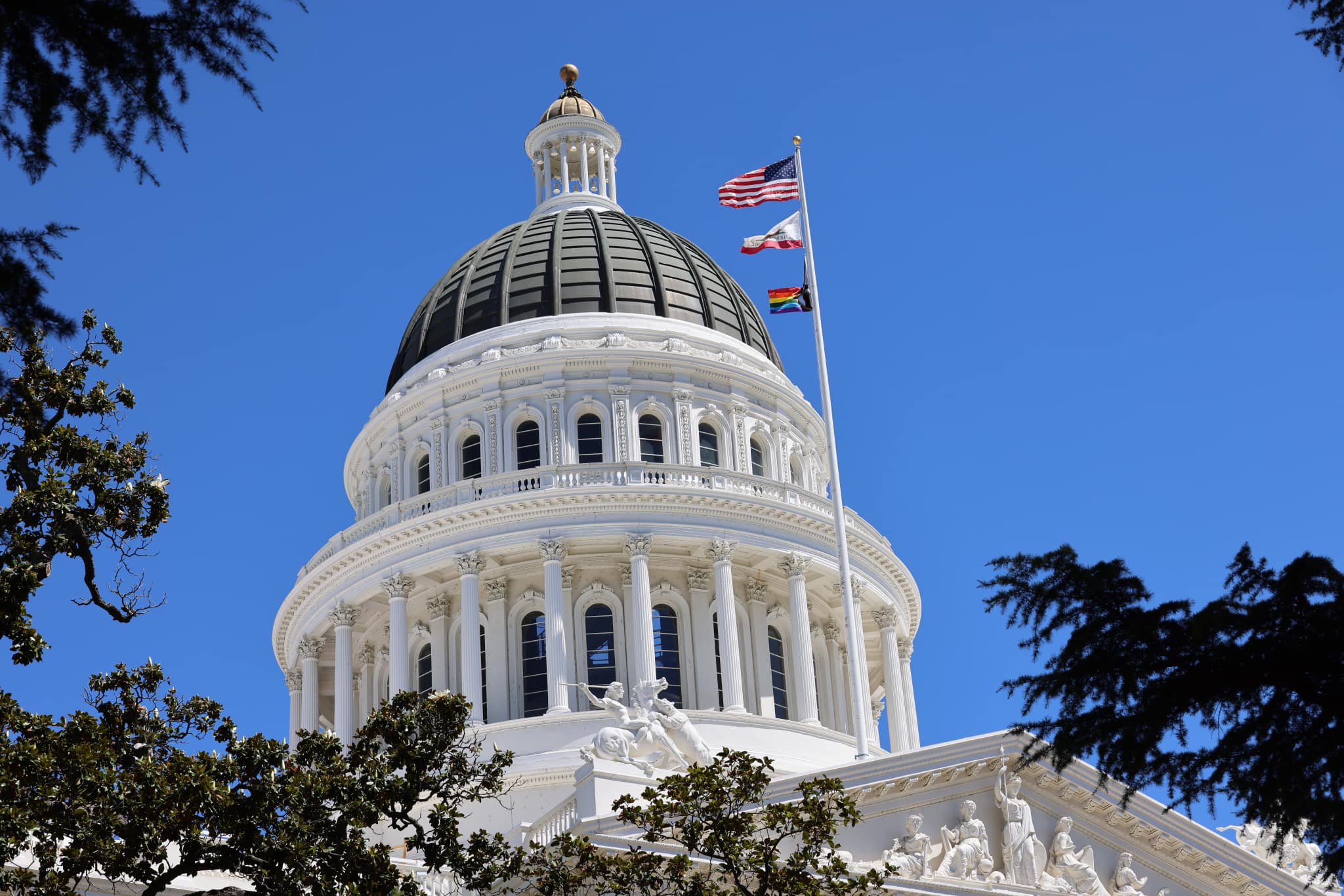News
Trump’s vow to invoke national emergency powers and use military force for mass deportations roils LA
Fearing loss of constitutional rights, executive overreach, and military involvement in civil law enforcement, immigration community scrambles
Donald Trump has made clear his intention to begin mass deportations immediately upon taking office on January 20, 2025, a promise he made repeatedly during his 2024 presidential campaign.
“On Day 1, I will launch the largest deportation program in American history to get the criminals out,” he declared during a rally at Madison Square Garden in the final days of the presidential race. “I will rescue every city and town that has been invaded and conquered, and we will put these vicious and bloodthirsty criminals in jail, then kick them the hell out of our country as fast as possible.”

This week, for the first time, Trump vowed to invoke national emergency powers to execute this plan and, particularly troubling, will use the Armed Services to do so.
National emergency declarations have long been used by U.S. presidents to access extraordinary powers, often bypassing congressional oversight. The National Emergencies Act (NEA) of 1976 was designed to prevent unchecked executive authority, but its provisions have failed to effectively curb presidential overreach. While the act sets guidelines for declaring national emergencies, presidents have frequently invoked this power to justify wide-ranging actions, from military interventions (abroad) to surveillance programs (domestically and abroad).
For example, in the aftermath of the September 11 attacks, President George W. Bush invoked national emergency powers to pass the Patriot Act, which allowed for sweeping surveillance and counterterrorism measures with minimal congressional oversight. This precedent establishes a concerning foundation for Trump’s proposed use of emergency powers in the realm of immigration enforcement.
Trump’s pledge to invoke emergency powers to detain, round up, and deport over 11 million undocumented immigrants would result in a domestic military operation of unprecedented scale.
He vows to build “vast holding facilities that would function as staging centers” for immigrants as their cases progressed and they waited to be flown to other countries. While large-scale deportation efforts have been attempted in the past—most recently President Eisenhower’s “Operation Wetback” in the 1950s, which deported 1.1 million people—today’s proposed numbers are far greater. Even the Obama administration, which deported 1.8 million people during its tenure, faced significant legal and logistical hurdles that made large-scale deportations difficult to carry out quickly and without consequence.
Many hurdles exist.
Legal challenges are almost certain to engulf Trump’s administration should it pursue such a plan. These challenges will include key issues such as whether the president can lawfully bypass Congress to enforce mass deportations. There will also be significant legal disputes surrounding the treatment of detained immigrants, particularly their Due Process rights under the U.S. Constitution.
The 2018 Supreme Court case Jennings v Rodriguez, reaffirmed that due process protections apply to all individuals on U.S. soil, regardless of immigration status, guaranteeing them rights such as bond hearings and access to counsel.
Any attempt to bypass these rights would invite immediate and substantial legal challenges, further complicating Trump’s efforts.
In addition to these legal complexities, the logistical challenges of executing such a massive operation would be immense. Deporting millions of individuals would require extensive resources for transportation, housing, medical care, and sustenance. Some estimate the price tag could exceed $300 billion dollars.
The U.S. government would need to significantly expand detention facilities and infrastructure to accommodate such a large influx of detainees.
Historical attempts to increase detention capacity, such as the family detention centers under Obama, faced severe criticism for overcrowding, inhumane conditions and the violation of human rights.
Legal objections are likely to arise concerning the use of armed military personnel in civilian spaces. Deploying military forces for domestic law enforcement operations could violate the Posse Comitatus Act, which restricts the use of military personnel in civilian law enforcement activities. Previous efforts to militarize U.S. immigration enforcement—such as the use of the National Guard at the U.S.-Mexico border—faced constitutional challenges and public backlash.
If Trump proceeds with using the military for mass deportations, it would almost certainly prompt immediate legal challenges based on this law.
Trump has long expressed disdain for the traditional system of checks and balances, viewing even basic constitutional arguments as an obstacle to his leadership.
He has shown that he will not hesitate to bypass Congress and other governmental processes for key appointments. For example, during his first term, Trump repeatedly sought to circumvent the Senate confirmation process, such as with his appointments to the Department of Justice and Health and Human Services, where he clashed with Senate Democrats over key nominations.
Trump is not shy about his broader desire to centralize power within the executive branch, diminishing the role of both the legislative and judicial branches. His antagonism toward agencies like the National Security Council and the Homeland Security Council—which he has accused of undermining his administration—further underscores his aim to weaken institutional checks on executive power. If unchecked, we could see a presidency where unilateral decisions by the executive become the norm, with minimal oversight from Congress or the courts.
Already, Trump has signaled his intent to appoint loyalists to key agencies, many of which he clashed with or feels have hindered his agenda. Examples include his controversial Pentagon appointments, as well as his selection of Director of National Intelligence and Health and Human Services leaders, who have been seen as part of his push to exert more control over agencies he perceives as obstructionist or hostile. He has already assigned a Border Czar, Tom Homan, who separated thousands of families at the border during Trump’s first term; that policy resulted in children never again being found.
Seizing emergency powers would allow Trump to bypass some, but not all, political and legal barriers to implementing his deportation plan.
To make it more feasible, he would likely need to suspend aspects of Due Process protections, militarize public spaces and bypass rules surrounding the detention of individuals without adequate hearings or access to credible legal counsel. This would create a system where any individual could be detained, processed and deported with no actual regard for constitutional protections.
In short, a frustrated Trump—empowered by a Republican-majority Congress and a potentially willing DOJ and Supreme Court—might attempt to suspend the constitution.
This is not without precedent.

Over 120,000 people of Japanese descent were interned in camps throught out the US during World War II, including 20,000 at Los Angeles County’s Santa Anita Assembly Center. (Photo: PBS)

In 1862, President Lincoln issued Presidential Proclamation 94 which suspended the writ of habeas corpus. (Photo from National Archives education division)
During the Civil War, Abraham Lincoln suspended habeas corpus to suppress dissent, and during World War II, Franklin D. Roosevelt’s internment of Japanese Americans involved the suspension of their constitutional rights in the name of national security.
While these actions were taken during times of war, they set dangerous precedents for the suspension of civil liberties in the face of perceived national crises. Trump has called the immigration an ‘invasion’ and has referred to migrants and their protectors as the ‘enemy within.’
Though few are publicly contemplating this possibility, we must acknowledge that we are on a trajectory toward some form of civil rights suspension, and certainly, we are witnessing a potential for widespread executive overreach.
At the local level, cities and states have vowed to resist Trump’s immigration plans.
The Los Angeles City Council has declared itself a Sanctuary City, and Mayor Karen Bass has pledged that no city resources or personnel will support deportation efforts.
Similarly, Governor Gavin Newsom of California has made declarations on behalf of the state.
However, these measures do not prevent the federal government from taking action on the ground.
In fact, Trump and Congress have the authority to terminate federal funding to uncooperative states and local governments.
In 2021, for example, California received over $150 billion in federal funding, which could be withheld as political leverage at every turn to force compliance with federal immigration policies.
Most immigration rights advocates, attorneys and others want to point out that there is every reason to remain hopeful and that Due Process rights, good judges and justice minded citizens will work to protect most people from unjust treatment and deportation.
However, it’s not clear what Due Process or advocacy might look like if Trump militarizes the process and suspends the Constitution.
There are currently several immigration violations that could lead to the deportation of individuals attempting to remain in the U.S. and people who entered the country without authorization are often a focus of immigration enforcement, particularly under the Trump administration.
However, the specifics of deportation policies can vary and it’s important to note that many individuals who entered the U.S. improperly have remained in the country for years, blending into communities.
Some of these individuals have applied for asylum or are in the process of adjusting their status through other legal avenues, such as family-based petitions or employment-based green card applications.
The process for detaining and deporting these individuals can depend on several factors, including whether they have a criminal record, whether they are in removal proceedings or their current legal status.
Ally Bolour, a well-known immigration attorney based in Los Angeles, says he has faith in Due Process but is “concerned that the process may become much more restrictive and that due process may be minimal and not applied fairly.”
Bolour has since 1996 worked with individuals facing deportation and specializes in cases involving people who have entered the U.S. without authorization and those seeking asylum.

“Sensitivity to the queer minority is going to be minimal,” under Trump’s immigration system, he says.. “They won’t care. It’s literally a fact that, if you are a gay person fleeing the Islamic Republic, you’re fleeing because they’re gonna hang you. Credible fear. But after January 20, as I see it,chances of a gay Iranian being able to and pass the credible fear becomes more difficult than it is today.”
Los Angeles Blade spoke with Bolour about 23 year old Jesus, one of the more than 200,000 LGBTQ immigrants who have made their way to California in the past few years.
His immigration situation as an asylum seeker today illustrates the impact a growing maze of intentional legal and bureaucratic hurdles has on immigrants’ ability to advance their cases.
Jesus made his way to the U.S. seeking refuge from the violence and instability that defined his life in Venezuela.
Born in Caracas, Jesus’ childhood was marked by the unraveling of his family’s middle-class life as Venezuela descended into political and economic chaos. His father, once a government worker loyal to Hugo Chávez, witnessed the system’s collapse from within. He refused to comply with orders from high-ranking officials like Diosdado Cabello, resulting in the family’s swift downfall.
Jesus’ early years were defined by loss, as their possessions and status vanished, leaving them targets of a ruthless government.
Venezuela’s economic collapse, particularly between 2013 and 2023, created unimaginable hardship. Hyperinflation and a crumbling economy made basic necessities unattainable, and survival became a daily struggle. But for Jesus, being gay in a country that became increasingly hostile to LGBTQ people added another layer of peril.
“In Venezuela, being gay isn’t just a social challenge—it’s a potential death sentence,” he explains, recalling countless friends lost to violence or suicide. The societal rejection and threats, he says, were constant.
Faced with this brutal reality, Jesus made the decision to flee Venezuela. “It wasn’t impulsive; it was a matter of survival” he says. Part of a larger wave of over 7 million Venezuelans fleeing the country, Jesus traveled to Mexico City, then to Tijuana, before crossing the U.S. border on foot near San Diego. He chose to surrender to U.S. border authorities, a decision that led to his detention across various facilities in the Southwestern and Southeastern U.S.
During his six months in detention, Jesus faced COVID-19, potential deportation, and constant uncertainty. Yet, even in these grim circumstances, he found a sense of community among other LGBTQ detainees. “We watched out for each other,” he recalls. Eventually, a friend bailed him out.
Today, Jesus works and lives in California, grateful for his newfound safety but now facing the prospect of having his American journey crushed by Donald Trump.

Jesus mingles in the crowd at a recent Washington DC Pride celebration. (Photo by Los Angeles Blade)
Because he crossed the U.S. border illegally, his designation remains “Entered Without Inspection” (EWI)—a status that may pose a significant threat to his ability to remain in the country.
Trump’s immigration round up plan appears to target individuals with EWI status no matter how long they have been in the country or where they are in the process of becoming a visa holder (witness his determination to remove even American-born adult children of elderly immigrants in this status).
In an effort to strengthen Jesus’ case, his attorney has suggested a bold and complicated strategy: leave the U.S. and re-enter through legal channels.
Attorney Bolour says he would advise against this strategy for someone like Jesus.
“For those with pending asylum applications and an expired TPS, it is very difficult to obtain Advanced Parole,” he says. “There are significant risks involved.” He recommends that people in this situation “do not travel until they have some form of approved status, such as TPS.”
Bolour notes that “every case is different” and it is imperative that people “consult with counsel before making any firm decisions.”
In the case of Jesus, if he was able to wipe the EWI status from his record, it might help him avoid the First Country Rule.
This rule mandates asylum seekers apply for asylum in the first country they reach after fleeing their home country, and for Jesus, that country was Mexico. If he were able to reset his immigration record, this rule might potentially no longer apply to him.
However, his ability to exit the US and reenter is made risky because his Temporary Protected Status , which had allowed him to stay in the U.S. without fear of deportation, expired in March 2024. Since then, he has been waiting for his renewal application to be processed.
TPS was set for automatic renewal but the system has conveniently failed to renew status for thousands of people.
Without a valid TPS, Jesus cannot legally leave the U.S., as doing so would trigger an automatic ban on his re-entry.
To leave the country legally, he would need to apply for Advanced Parole, a document that permits individuals to travel abroad temporarily without risking their legal status.
But obtaining Advanced Parole is no simple feat. The application process can take months and even if expedited, there is no guarantee of timely approval. It’s impossible, however, without an active TPS.
The intersection of expired TPS, bureaucratic delays and the looming threat of U.S. military lead deportation and harsh immigration policies leaves Jesus in a state of perpetual uncertainty.
Bolour says everyone “must be prepared for the worst possible outcome: a systematic erosion of civil rights, aggressive federal action, and a significant legal, human rights, and constitutional crisis.”
To that end, Bolour says the most important thing any person facing immigration challenges should have, is a plan:
- Remain Calm:
- Stay calm and do not physically resist. Immigration agents have the authority to detain you, but resisting can lead to additional charges or complications.
- NOTE: If agents appear at your door with a warrant for your arrest, do not let them in unless the warrant has been signed by a judge.
- Know Your Rights:
- You have the right to remain silent and not answer questions about your immigration status. You also have the right to ask for a lawyer. Remember, anything you say can be used against you in the future.
- You have the right to remain silent and not answer questions about your immigration status. You also have the right to ask for a lawyer. Remember, anything you say can be used against you in the future.
- Request to Contact an Attorney:
- Ask to speak with an immigration attorney immediately. You have the right to legal counsel, and an attorney can guide you through the process and ensure your rights are protected.
- Ask to speak with an immigration attorney immediately. You have the right to legal counsel, and an attorney can guide you through the process and ensure your rights are protected.
- Do Not Sign Any Documents Without Legal Advice:
- Do not sign anything without understanding what it means. Immigration officials may ask you to sign forms or waivers, which could impact your case. Consult with an attorney before signing any documents.
- Do not sign anything without understanding what it means. Immigration officials may ask you to sign forms or waivers, which could impact your case. Consult with an attorney before signing any documents.
- Provide Only Basic Information:
- Only provide your name, address, and date of birth. Avoid answering other questions or providing more personal information without a lawyer present.
- Only provide your name, address, and date of birth. Avoid answering other questions or providing more personal information without a lawyer present.
- Limit Social Media posts:
- Do not post private information or photos and restrict your interactions to known participants. If your page is public, set to friends only and do not share your location.
- Do not post private information or photos and restrict your interactions to known participants. If your page is public, set to friends only and do not share your location.
- Document the Detention:
- If possible, have a trusted friend or family member document your detention, including the time, location, and agents involved. This information can be important for legal proceedings or for advocacy groups that may assist in your case.
- If possible, have a trusted friend or family member document your detention, including the time, location, and agents involved. This information can be important for legal proceedings or for advocacy groups that may assist in your case.
- Exercise Your Right to Make a Phone Call:
- You have the right to make a phone call to family, friends, or your attorney. Immigration authorities should allow you to call a lawyer, though this may vary by location.
- You have the right to make a phone call to family, friends, or your attorney. Immigration authorities should allow you to call a lawyer, though this may vary by location.
- Request a Hearing:
- You have the right to request a hearing in front of an immigration judge. Your attorney can help you with this process and inform you of any options for contesting your detention.
- You have the right to request a hearing in front of an immigration judge. Your attorney can help you with this process and inform you of any options for contesting your detention.
- Avoid Talking About Your Case:
- Do not discuss your case with other detainees, as it may be used against you. Stick to speaking with your lawyer or trusted individuals.
- Do not discuss your case with other detainees, as it may be used against you. Stick to speaking with your lawyer or trusted individuals.
- Stay in Contact with Support Networks:
- Keep your family, friends, and advocacy organizations informed about your situation so they can assist with legal or practical needs during the detention process.
- Keep your family, friends, and advocacy organizations informed about your situation so they can assist with legal or practical needs during the detention process.
- Create an emergency notification group:
- If you are detained or face any urgent situation, inform a trusted core group of family and friends who can collaborate to assist you.
By following such steps, Bolour says, you can help ensure that your legal rights are respected and that you have the best chance of navigating the immigration detention process effectively.
“It is affecting my health and I don’t know what my real options are,” says Jesus. “They keep adding rules and conditions and slowing my ability to keep the case up to date. It’s like a game of musical chairs where you run out of time to get to the right place before Trump stops the music.”
“But,” adds Jesus, “I am not going to give up. I can’t. Even though I don’t know what’s next.”
a&e features
Meet the chef who built his legacy in the LGBTQ+ community
He is an icon in the Hollywood culinary scene and a fierce ally in the LGBTQ community

Editor’s note: The interview with Chef Juan featured in this article was done in Spanish and translated accordingly for this article, but kept in its original format.
Juan Raigosa Chavez is the living embodiment of the American dream that many can only hope for. During his 40-year culinary journey, he was able to become a legal citizen and has enjoyed the privileges of living and working in Los Angeles for four decades.
Chef Juan migrated here from Zacatecas, Mexico in 1985 and since then he has worked his way up to his current position as one of West Hollywood’s most beloved chefs in the LGBTQ+ bar scene.
He started his journey as a dishwasher and through his hard work, dedication to achieving the American dream and meticulous work ethic, he was able to climb the ranks in the kitchen team hierarchy.
“Primero empecé lavando platos en 1985 en Marix Tex Mex [Café] en Hollywood. Y después me hice preparador, después me hice cocinero. Y luego me hicieron kitchen manager, primero de Marix y luego de Basix Café haciendo creatividad de menús, variedad de comida, y más,” nos dice Chef Juan. “Me mandaron a las mejores escuelas culinarias de San Francisco pagados por la dueña de Basix.”
“First, I started washing dishes in 1985 at Marix Tex Mex [Café] in Hollywood. Then, I was promoted to food prep, then kitchen cook. Finally, I became kitchen manager—first at Marix and then an Basix Café—creating menus and a variety of dishes,” said Chef Juan. “[The restaurant owners] sent me to the best culinary schools in San Francisco, all paid for by the owners.”
Chef Juan was living the American dream and had worked very hard to get to the position he was in when Covid-19 hit and many restaurants, including both Marix and Basix were forced to close. As of earlier this year, it seems like Marix Tex Mex Café is apparently set to re-open at the same location, while the location Basix was in, is still up for lease.
WeHo times first reported that workers have been adding finishing touches to the exterior of the building, but the significant delay in re-opening is due to extensive water damage that happened while the location was closed.
“Mucha gente lloró, porque teníamos más de cuarenta personas a mi cargo allí,” recalls Chef Juan.
“A lot of people cried because there were over forty people who worked under my leadership during that time,” said Chef Juan.
He was laid-off for two years and then when he stopped receiving federal assistance, he uploaded his resume online and the previous owners of GymBar WeHo, immediately called him up to hire him as their chef.
During his time at Marix and Basix, he says he gained a lot of valuable experience and gained a deep respect for the rich and diverse community of Hollywood.
Within three days of uploading his resume, he was hired.
“No duraron ni tres días cuando ya estaba contratado por que, como te dire–me hice un poco famoso,” Chef Juan tells the Los Angeles Blade. “Muchos de la ‘community’ me reconocen.”
“Not even three days passed until I was fully hired, because how do I say this? I guess I got a little bit famous,” Chef Juan tells the Los Angeles Blade. “A lot of people in the community recognize me.”
At that moment, a patron from the restaurant kindly interrupted the interview to say goodbye to Chef Juan and thank him for the food.
“Si ves, siempre me saludan porque me conocen y saben quién soy,” nos dice Chef Juan.
“See? People always say hello to me because they recognize me and know who I am,” Chef Juan tells us.
He also tells us that many people who know that he started working at GymBar have asked him to recreate some of his famous dishes from when he worked at Marix and Basix.
Chef Juan says his favorite part about working in a kitchen is his ability and freedom to create new dishes and elevate recipes that have always been staple dishes in his life and culture.
Due to his heartwarming attitude, friendly face and incomparable work ethic, he is now a sought-after chef and iconic member of the Hollywood community.
“Bastante gente me ha buscado desde que empecé aquí,” said Chef Juan.
“Plenty of people have looked for me here since I started,” said Chef Juan.
When asked how he wins over new customers, he said he likes to start off by asking customers what their favorite dishes are and then he builds on that until he’s able to find something that they are excited to try.
He spoke passionately about how much he loves to win over new customers and continue to impress his loyal customers. He says that to avoid mistakes, he likes to personally train each person who works under him, saying this is how he ensures the quality of the food is consistently to his standards.
“Es hacer las cosas con amor—porque cuando estás enojado no te va a salir bien—la comida te sale perfecta,” said Chef Juan.
“It’s about doing everything with love so it comes out perfect, because when you’re angry, nothing will taste right,” said Chef Juan.
It goes without saying that he is an icon and when we asked him how he felt about his entire career and legacy being built around the LGBTQ+ community of West Hollywood as a Latin American person, his answer was heartwarming.
“I love my people of West Hollywood, my neighborhood and for me it’s all normal,” said Chef Juan in both English and Spanish. “For many people, I understand it’s scary, but I understand [them] and I love my people no matter what they do.”
Chef Juan continues his legacy as he celebrates his 40th year, now working at WeHo’s GymBar, which is run by one of the Dodgers executive’s, along with his husband. As an avid Dodger fan, Chef Juan has also had the opportunity to participate in cooking demonstrations led by chefs at Dodger Stadium. GymBar WeHo is actually one of the only other locations in LA—other than Dodger Stadium that sells the authentic Dodger Dog.
Now that baseball season is underway, Chef Juan invites everyone in the nearby communities to join them for a game and a Dodger Dog.
Local
New chapter: P3 Theatre Company moves to Los Angeles
P3 Theatre Company, a long-standing staple in Long Beach’s theatre scene, has officially relocated to Los Angeles.

P3 Theatre Company, a long-standing staple in Long Beach’s theatre scene, has officially relocated to Los Angeles. While the company remains close to its Long Beach roots, this move signals a fresh chapter and opportunity to connect to a broader audience.
Jon Peterson, Executive Director and Founder of P3 Theatre Company, discusses the transition.
“After the pandemic lifted, the venue we were renting in Long Beach was no longer available to us,” explained Peterson. “After some time, we decided to look in the Greater Los Angeles area. There are so many great venues available, and there’s definitely a huge demand for the arts.”
P3 Theatre’s first major production in Los Angeles will be “Day After Day” (The Life and Music of Doris Day), a sentimental and nostalgic celebration of the legendary singer and actress. The choice to revive this show was intentional — it was P3’s last production before the Covid-19 shutdown.
“‘Day After Day ‘ was a very successful production,” said Peterson, noting that it earned Deborah Robin the Best Performer in a Musical title at the Orange County Theatre Guild Awards. “It’s such an endearing show with tons of recognizable music and the dynamic story of Doris Day.”
While dazzling performances are integral to P3’s mission, the company is equally committed to community outreach. Peterson emphasized that the move to the West Hollywood and Hollywood areas, offer opportunities to collaborate with other nonprofits and expand access to the arts for marginalized groups.
“There is a huge demand for the arts in this region,” said Peterson. “We look forward to bringing shows that audiences are excited to see, as well as introducing new works that will enhance their theatrical experience.”
One of P3’s signature initiatives is P3 Educates+, a program designed to provide performing arts workshops to underserved communities. Catering to all ages – which Peterson describes as 0-100+ – the workshops include improvisation, acting, and singing.
“It provides more than just an education of theatre,” Peterson explained. “[It provides] a level of entertainment that marginalized communities may not have an opportunity to experience otherwise.”
Supporting LGBTQ+ stories and artists is also a core priority for P3 Theatre Company. Peterson highlighted the company’s commitment to producing both new LGBTQ+ works and celebrated classics.
“Our stories need to be told and heard,” Peterson emphasized. “What better way to do so than through the arts?”
Among P3’s proudest achievements are the world premieres of two acclaimed works by playwright Jiggs Burgess. The Red Suitcase won the prestigious Del Shores Playwright Competition, while Wounded earned multiple awards at the Hollywood Fringe Festival in 2023. The latter’s success secured an off-Broadway run at Soho Playhouse in New York City, with performances continuing in 2024 and 2025.
P3 Theatre Company has ambitious long-term goals for its future in Los Angeles. Peterson hopes to build a strong audience and donor base while eventually securing a permanent performance space.
“P3 Theatre Company’s long term goal is to grow a solid audience and donor base in Los Angeles – and to find ‘the perfect theatre’ to hang our hat in.” Peterson said. “It is our plan to call Los Angeles our home and to continue to produce professional theatre in a community where theatre is thriving.”
For those eager to experience P3’s return to the stage, tickets for Day After Day (The Life and Music of Doris Day) are now available. As Peterson says with confidence, “We know the audiences will love it!”

For more information about P3, head to www.p3theatre.biz
Federal Government
USCIS announces it now only recognizes ‘two biological sexes’
Immigration agency announced it has implemented Trump executive order

U.S. Citizenship and Immigration Services on Wednesday announced it now only “recognizes two biological sexes, male and female.”
A press release notes this change to its policies is “consistent with” the “Defending Women from Gender Ideology Extremism and Restoring Biological Truth to the Federal Government” executive order that President Donald Trump signed shortly after he took office for the second time on Jan. 20.
“There are only two sexes — male and female,” said DHS spokesperson Tricia McLaughlin in a statement. “President Trump promised the American people a revolution of common sense, and that includes making sure that the policy of the U.S. government agrees with simple biological reality.”
“Proper management of our immigration system is a matter of national security, not a place to promote and coddle an ideology that permanently harms children and robs real women of their dignity, safety, and well-being,” she added.
The press release notes USCIS “considers a person’s sex as that which is generally evidenced on the birth certificate issued at or nearest to the time of birth.”
“If the birth certificate issued at or nearest to the time of birth indicates a sex other than male or female, USCIS will base the determination of sex on secondary evidence,” it reads.
The USCIS Policy Manuel defines “secondary evidence” as “evidence that may demonstrate a fact is more likely than not true, but the evidence does not derive from a primary, authoritative source.”
“Records maintained by religious or faith-based organizations showing that a person was divorced at a certain time are an example of secondary evidence of the divorce,” it says.
USCIS in its press release notes it “will not deny benefits solely because the benefit requestor did not properly indicate his or her sex.”
“This is a cruel and unnecessary policy that puts transgender, nonbinary, and intersex immigrants in danger,” said Immigration Equality Law and Policy Director Bridget Crawford on Wednesday. “The U.S. government is now forcing people to carry identity documents that do not reflect who they are, opening them up to increased discrimination, harassment, and violence. This policy does not just impact individuals — it affects their ability to travel, work, access healthcare, and live their lives authentically.”
“By denying trans people the right to self-select their gender, the government is making it harder for them to exist safely and with dignity,” added Crawford. “This is not about ‘common sense’—it is about erasing an entire community from the legal landscape. Transgender, nonbinary, and intersex people have always existed, and they deserve to have their identities fully recognized and respected. We will continue to fight for the rights of our clients and for the reversal of this discriminatory policy.”
Politics
City of Long Beach passes motion to become LGBTQ sanctuary city
The motion also officially recognizes Trans Day of Visibility on March 31st

Long Beach City Council passes motion to officially recognize March 31st as Transgender Day of Visibility and make Long Beach a sanctuary city for LGBTQ+ people, with all 8 councilmembers in favor.
At Tuesday’s City Council meeting, community members weighed in on the motion through public comment.
“The City of Long Beach is 1 of only 47 cities nationally that have gotten a perfect score on a Human Rights Campaign’s Municipal Equality Index,” said community member Anthony Brice at the public meeting. “It also received an extra 11 bonus points, so we are urging the city to please adopt this motion and uphold those standards.”
In March, Councilmember Megan Kerr, Councilmember Cindy Allen and Vice Mayor Roberto Uranga submitted a recommendation to Mayor Rex Richardson and the City Council to officially recognize March 31st as Transgender Day of Visibility in the City of Long Beach and recognize the City of Long Beach as a ‘Transgender Safe City.’
During the public comment section of the meeting, other community members also voiced their opinion and opposition to Elon Musk bringing SpaceX to Long Beach, citing his openly anti-trans and anti-LGBTQ agenda.
Janine Stallings, a trans community member, urged the city council to not just pass this “performative resolution,” but to also cancel all current contracts with SpaceX and any future plans for contracts.
According to the motion’s recommendation, “the current administration’s policies have raised concerns about the rights and protections of transgender, non-binary, and gender diverse individuals.”
The recommendation goes on to say that Long Beach has long been a hub for LGBTQ+ culture, activism and community, citing the Broadway Corridor as a cornerstone of the community for decades. The corridor is home to numerous LGBTQ+ businesses, gathering spaces and historic advocacy efforts, representing the city’s commitment to diversity and inclusion.
The recommendation – now an approved motion – called for Mayor Richardson to approve the recognition of March 31st as TDOV and make LBC a sanctuary city because it is essential to preserve the safe spaces that already exist.
“I am proud that our city remains an inclusive [city] and a safe place for everyone, especially our transgender community who, like many of you just talked about, face a heightened amount of criticism,” said Councilmember Allen. “It’s just been horrible – everything that’s been happening during this current administration.”
The city already has other policies in place regarding LGBTQ+ culture and identity such as, raising the Progress Pride Flag and the Transgender Pride Flag at City Hall, collecting sexual orientation and gender identity data to identify and address disparities within the community.
According to the recommendation, “under the current administration, it is more important than ever to unite and advocate for the protection of equal rights and legal protections for all.”
Events
Q Con 2025 taking place in West Hollywood, offering free admission
Reserve your free tickets at the Q Con website!

Q Con, SoCal’s only LGBTQ+ comic convention, is set to return Saturday, May 3, bringing in dozens of LGBTQ+ speakers, vendors, artists and community voices to their lineup.
“LGBTQIA+ people of all ages and backgrounds need to see themselves and their stories represented in the arts – to know they are okay, they are accepted and they are powerful. Q Con gives us the opportunity to do this – to raise queer voices in comic books and graphic novels, bring the community together and have a lot of fun at the same time,” said Ted Abenheim, president of Prism Comics.
Mark your calendars and start scheming up your queer cosplay outfits for a costume contest that celebrates the LGBTQ+ representation and visibility in one of the most queer-coded industries in media ahead of Pride month.
Prism Comics, the nonprofit organization championing LGBTQ+ representation and diversity in comic books, graphic novels and pop media, announced their 4th annual Q Con, happening in West Hollywood’s Plummer Park. The convention will take place in West Hollywood from 11AM to 6PM at Fiesta Hall.
The nonprofit established in 2003, is deemed the “LGBTQ+ Comics Central,” at San Diego Comic Con, WonderCon Anaheim, Los Angeles Comic Con and other conventions. Prism prides itself on providing a safe space for the LGBTQ+ community to unite over mutual passion, interest and love for comics, novels and more. This is the space where comic creators, readers, librarians, educators and families can come together and celebrate, discuss and enjoy the representation the community needs and deserves.
Find free tickets and more information regarding guest speakers, panels and vendors here.
Q Con is also currently seeking LGBTQ+ comic creators and businesses who are interested in setting up a table at the event. If interested in tabling or volunteering, email Ted Abenheim, President of Prism Comics at ted@prismcomics.org.
California
Running, racing, dodging: Janelle Kellman on her bid to be California’s next Lieutenant Governor
Kellman says that she wants to use the position to tie together responsible growth and addressing the affordability crisis

Janelle Kellman is used to running marathons, which comes in handy as she campaigns to be
California’s next Lieutenant Governor – a campaign she began in 2023 for an election
that won’t happen until November 2026.
“The secret to being a true runner is consistency and discipline,” she says. “Nobody will
outwork me. I am not career politician. I am somebody who is gonna roll up my sleeves
and do all of the hard work.”
If she wins, the environmental lawyer and former mayor of Sausalito will make history
as the highest-ranking LGBTQ person elected to statewide office in California. But Kellman says she’s no climber. She’s putting a large stock of her campaign on the fact that she’s not a Sacramento insider and she’s not planning to use the job as a springboard to some other, more high-profile job.
“Many people run for this position because they want to be something else. I’m not
trying to be something else. Actually, I really want to do this job,” Kellman says.
The Lieutenant Governor sits on the boards of all of California’s higher education
institutions and has a significant role in natural resources and economic planning
through membership on the State Lands Commission, Coastal Commission, and
Commission for Economic Development.
Kellman says that she wants to use the position to tie together responsible growth and
addressing the affordability crisis that has seen hundreds of thousands of people leave
the state.
“There’s three things we really need to be focusing on to address affordability crisis.
Number one more housing of all types. Number two, proper public safety policies and
keeping our families safe. And number three, better mental health programs, both to keep people off the streets and address the homelessness problem and to support our
children,” she says.
Meeting these challenges will require someone who can ensure that many different
parts of California’s government – from the education system, the housing approvals
process, to the legal system, the heath care system and more – are laser focused on
bringing down the cost of living, Kellman says.
“I’m a lifelong team sport athlete and I’ve always been the captain of all the sports, and I
see [being Lieutenant-Governor] very much as a unifying collaboration type role, right?
This is a role I specifically want because I like that dynamic. I am really drawn to the opportunity to bring experts together.”
Kellman is aware of the symbolism her serving as Lieutenant Governor as a queer
woman would have in 2025.
“Our rights are under attack nationwide, and I see it as more important than ever that
California continue to be a stronghold of equity and inclusion,” she says. “To have
somebody who represents a minority community at the helm of our government really
gives visibility to our issues and reinforces that Californian is a place that values equality
and inclusion.”
Still, on one of the thornier issues of queer inclusion, Kellman is noticeably aversive.
She was quick to scold the Gov. Gavin Newsom when asked to comment on his recent podcast where he mused that trans women competing in women’s sports was “deeply unfair.”
“I hope that he would aim to represent all members of the State of California. So, I
hope he continues to govern and not just have a podcast for the next couple of years,”
she says. “But it’s also an opportunity to remind voters and remind everybody, it’s much more than that. It’s about inclusion. It’s about education. It’s about mental health and wellness.
There are so many issues that affect people Nationwide and Statewide. We’ve got to
stay focused on the big picture.”
But does that mean that she would advocate for trans women athletes being able to
compete in women’s sports, particularly as the lieutenant governor has a role in higher
education, where this issue has been in focus?
“I think the role of the Lieutenant Governor as an individual who sits on many of these
boards is to ensure that all students are treated fairly, and all our young people feel safe,
whoever they are on college campuses. I think that is the number one. No matter your background, no matter your orientation. So I would apply that across the board to anybody on college campuses,” she says.
Given one more chance to clarify her position, Kellman dodges again.
“I think that we have bigger issues to be talking about in the United States and
California,” she says.
But Kellman is critical of the Democratic political establishment that has entrenched
itself in Sacramento, which she characterizes as impeding progress on California’s most
critical issues.
“We’ve become an obstructionist party, and we need to be a party that gets things
done,” she says. “I’ve been able to get a lot done even as a small town mayor, and I see
my fellow mayors be able to get things done at the local level, I want to raise that up so
that it happens statewide.
“Let’s be the party that gets things done. And let’s focus on this high cost of living first
and foremost,” she says.
Without invoking the specter of the word “efficiency” in today’s political climate, Kellman
is also eager to hold the establishment to account for solving the state’s problems.
“Where’s the accountability? Where’s the transparency? What is happening in real
time? Let’s take homelessness, right? We know that as a state from 2017-18 to now, we
spent 22 billion dollars on homelessness. And during that same time period, the number
of unhoused in California went up by a third. Now, what if we were actually demanding
accountability and transparency along the way?”
And she’s eager to hold herself to account in office, too.
“If this was the private sector, I’d get hired. Because we would say you know how to do
the job, you’re going to be held accountable. We need more of that.”
California
Two anti-trans bills fail to advance in California
AB 89 and AB 844 were aimed at banning trans women and girls from competing in women’s sports

The two bills introduced by Republican lawmakers aimed at banning trans athletes from female sports, did not pass during yesterday’s committee meeting.
Assembly Bill 89 and Assembly Bill 844, have failed to advance in the Arts, Entertainment, Sports and Tourism Committee on Tuesday by a 2-6 vote on each bill. AB 89, introduced by Assemblymember Kate Sanchez (R-Rancho Santa Margarita) and AB 844, introduced by Assemblymember Bill Essayli (R-Riverside), were both rejected by California lawmakers.
“If these members and their counterparts were truly committed to addressing the inequities and safety concerns women and girls face—in sports and everyday life—they would be joining the frontlines in the fight for equal pay, stronger protections against domestic violence and sexual assault, and expanded healthcare resources,” said Tony Hoang, executive director at Equality California.
AB 89 and AB 844 are part of the nationwide coordinated effort led by extremists in Washington D.C. to sow fear and misinformation about transgender people—in particular youth—and attempt to erase them from virtually all areas of public life.
“Instead of tackling the real problems in our state like high inflation and rising healthcare costs, Assemblymembers Sanchez and Essayli continue to waste time and taxpayer money using transgender youth as political pawns in a shameful display of divisive politics and a thirst for attention.,” said Hoang.
AB 89 would have established a ban on athletes whose sex was assigned male at birth, from competing on a girls’ interscholastic sports team.
AB 844 would have reversed California’s law which currently allows trans athletes to participate in girls and women’s sports teams across all age levels, up to college level.
Tuesday’s hearing marked the first public debate on the issue in California since Newsom’s public comments about trans women in sports being “deeply unfair.”
On Friday, Gov. Newsom’s office confirmed it received a letter from U.S. Education Secretary Linda McMahon, stating that California could lose federal funds if it continued to allow trans athletes to compete in women’s and girls’ sports.
“As Secretary of Education, I am officially asking you to inform this Department whether you will remind schools in California to comply with federal law by protecting sex-separated spaces and activities. I am also officially asking you to publicly assure parents that California teachers will not facilitate the fantasy of ‘gender transitions’ for their children,” she wrote in the letter.
Equality California continues their partnership with the Legislative LGBTQ+ Caucus and other legislative partners in an effort to combat the passage of bills like AB 89 and AB 844.
“We are pleased these bills have failed and are thankful to those lawmakers who opposed this dangerous legislation in committee, particularly to the committee chair, Assemblymember Chris Ward, for his leadership,” said Hoang.
California
GLAAD’s Latine Honors celebrates culture and identity with packed house

GLAAD’s Spanish-Language & Latine Media created and produced the first Latine Honors, nearly blowing the roof off of Grandmaster Recorders in Hollywood, with a more-than-packed house full of stars.
The Latine Honors were created to celebrate the best in queer, Latine visibility and representation in entertainment media, advocacy and journalism. This event happened back-to-back-to-back with the GLAAD Black and Brown Honors and the 36th GLAAD Media Awards.
The Latine Honors were hosted by the hilarious stand-up comedian Roz Hernandez, who continues to make waves in the Los Angeles comedy scene and beyond.
“Every single time [GLAAD] calls, I answer,” said Hernandez on the carpet.
Hernandez says she is very lucky to be acknowledged by GLAAD and to join forces with them in the work they do for the LGBTQ+ community.
The Spanish-Language Special Recognition Awards were presented on stage by Harvey Guillén to “The Q Agenda,” a TV series on Latin Nation and “La Verdrag,” a news show on Canal Once, for their incomparable contributions to queer, Latine representation in media.
LA Blade had the chance to interview some of the Latine stars that graced the carpet to offer their two cents on issues affecting the LGBTQ+ community, including Harvey Guillén, Vico Ortíz, David Archuleta and members of “The Q Agenda.”
“I think now more than ever, it’s important for us to remember that we can’t be numb to the things happening around us,” said Guillén. “People are becoming less empathetic toward our community and other communities being attacked, so we have to remember to not lose focus. Do not lose focus and do not lose empathy.”
We also had a chance to catch up with Ortíz on the carpet. They are currently hosting a daily LGBTQ+ news podcast with Nay Bever, where together, they tactfully deliver the news that is relevant to our communities.
“I am co-hosting a daily news podcast called ‘Today in Gay,’ where we wake up everyday, we read the news and then report them to our queer community,” said Ortíz. “It’s quite a responsibility, but I’m also really honored to deliver [the news] with care and tenderness and tact.”
Ortíz was an honoree at the Latine Honors for their outstanding contributions to the media and entertainment industries as a Puerto Rican, non-binary, multi-hyphenated artist.
Archuleta spoke to us about his latest single Créme Bruleé, which incorporates a Latin flare to a pop tune.
“I’m so excited because I just released a new song, Creme Bruleé” said Archuleta. “I was really inspired by the pop girlies – Chapelle, Sabrina, Charlie [XCX], Billie [Eilish], and I just thought I wanted to channel that and I want to feel that confidence and that sexiness that I feel when I listen to their music, but I wanted to add a Latin flare to it.”
Keynote remarks were delivered by GLAAD President and CEO, Sarah Kate Ellis; welcome remarks were shared by Monica Tresandes, Senior Director of Spanish Language & Latine Media and Representation; and Gabe Gonzalez, host of GLAAD’s original ¡DÍMELO!, shared remarks about the attendees representing the Latine creators and media from across the industry.
Arts & Entertainment
2025 Best of LGBTQ LA Readers’ Choice Award Nominations

It’s time to celebrate the vibrant and diverse LGBTQ+ community of Los Angeles! Nominations for the Best of LGBTQ LA Awards are open from March 31st to April 6th, giving you the chance to highlight your favorite local legends, hotspots, performers, and change-makers. Then, from April 14th to April 27th, cast your vote for the finalists and help decide who truly represents the best of LGBTQ LA.
Use the form below or click the link HERE to nominate!
Local
‘Think of those who have not been seen,’ Cynthia Erivo’s powerful message at GLAAD Awards
Erivo and Doechii delivered powerful acceptance speeches at the 36th GLAAD Media Awards

GLAAD celebrated its 40th anniversary with a star-studded gala in Beverly Hills, honoring achievements in LGBTQ+ media and entertainment, while pushing back at efforts nationwide to turn back civil rights protections, restrict and erase transgender identities.
Doechii accepted a GLAAD Media Award for outstanding music artist, Harper Steele won for outstanding documentary for Will & Harper and Nava Mau was honored with the outstanding series – limited anthology award for Baby Reindeer.
Those in attendance rose for a long and enthusiastic standing ovation as the prestigious Stephen F. Kolzak Award was presented to Cynthia Erivo.
“It isn’t easy. None of it is, waking up and choosing to be yourself, proclaiming a space belongs to you when you don’t feel welcomed,” said Erivo.
The 38-year-old queer Oscar nominee and Emmy, Tony and Grammy winner delivered a moving acceptance speech, in which she thanked GLAAD but also called on the audience to do more to help those in the community who have not yet come out. Video of her remarks has gone viral on Instagram.
“Here in this room, we have all been the recipients of the gift that is the opportunity to be more. I doubt that it has come easy to any of us, but more, for some, the road has not been one paved with yellow bricks, but instead paved with bumps and potholes. Whichever road you have traveled, how beautiful it is that you’ve had a road to travel on at all. There are the invisible ones who have had no road at all. For those who have not
yet even begun to find the road, be encouraged and be patient with yourself, it will show itself,” Erivo said. Then she paused from reading the speech that was in the teleprompter, and ad libbed a poetic, closing message.
“We use the phrase ‘out and proud,’ and though you might not have the strength or capacity to do that now, know that I am proud of your quiet and solitary want to be just that,” she said, and then addressed the community ahead of Transgender Day of Visibility. “We are all visible. We can be seen. We see each other. I see you, you see me. But think of those who have not been seen, think of those who sit in the dark and wait their turn, hoping and waiting for a light to light their path. I ask every single one of you in this room, with the spaces that you’re in, and the lights that you hold, to point it in the direction of someone who just needs a little guidance.”
Broadway legend Patti LuPone offered guidance from queer icons, past and present, when she took the stage to recite inspiring quotes that brought the house down.
“I can no longer accept the things I cannot change. I am changing the things I cannot accept,” LuPone quoted lesbian, feminist, activist Angela Davis. “Coming out is the most political thing you can do,” she said, quoting Harvey Milk.
Then LuPone cited some of the stars of Drag Race, including Valentina, Kennedy Davenport, Alyssa Edwards, Trixie Mattel, Plane Jane, and Latrice Royale. But it was the words of OG Drag Race alumna Bianca Del Rio that got the crowd on its feet: “Not today, Satan. Not today!”
“Right now, LGBTQ+ rights are under attack, but what they take from us, they take from you too,” said Brian Michael Smith, upon winning the award for outstanding drama series for 911: Lone Star. “These aren’t isolated rollbacks; they’re attacks on all of our civil rights. This kind of representation is more than visibility, it’s resistance.”
When Doechii accepted the trophy for outstanding music artist at the ceremony, the “Denial Is a River” rapper commented on this politically charged moment for the LGBTQ community, as she praised GLAAD for its principles of “acceptance, inclusiveness and empowerment.”
“Those are the same things I strongly believe in and advocate for and that continue to propel me forward, especially now that hard-won cultural change and rights for transgender people and the LGBTQ community have been threatened,” said Doechii. “And I am disgusted. Disgusted. But I want to say that we are here and we are not going anywhere.”
“These kinds of events help me to feel support, to feel like we’re a team working together to make ourselves feel more seen, make others feel more seen, and there’s so much still to celebrate,” said singer songwriter David Archuleta, the American Idol alum who made headlines in 2021 when he came out and quit the Mormon Church. On the red carpet before the gala, he shared with the Los Angeles Blade his advice to fans who want to find joy amid the gloom: “I love to go dance. Dance is so therapeutic. It’s a place where you can just shake it off, feel hot, go out, and that’s a therapeutic way.”
“This is where I find joy,” Michaela Jaé Rodriguez told the Blade. “But the best times where I find even more joy is learning what state we’re in. Learning how I can fire myself, put a fire behind me, and stay as vigilant as possible and be in the forefront and never disappear. And I want to encourage that to a lot of my young individuals out there. Don’t disappear. Stand out, be proud, and don’t be scared. I’m not scared!”
“It feels amazing, being surrounded by basically my own people is always like a big warm hug, so I love it,” Harper Steele told the Blade.
The writer, who took home a GLAAD trophy for her award-winning documentary with her friend and fellow SNL alum Will Ferrell, noted that despite the joy of the evening, she was “very sad” about political moves targeting the transgender community in Washington, D.C. as well where she grew up in Iowa.
“My own home state, who gave me trans protections and rights, just took them away,” Steele told the Blade. “We’re the first group that’s ever had those rights taken away from us, so we’re in a weird time. I’m going to keep doing the best I can to convince people that they’re wrong. Not only are they wrong, but they’re being stupid.”
The Washington Blade was nominated for its coverage of the 2024 Summer Olympics Games, ”Paris Olympics: More queer athletes, more medals, more Pride, less Grindr,” in the category of outstanding print article. The winner was “‘Changing The Narrative’: Advocates Fight HIV Stigma in Dallas’ Latino Community” by Abraham Nudelstejer of The Dallas Morning News. The Advocate won for outstanding magazine overall coverage, and Jo Yurcaba of NBC Out won for “Friends Remember Nex Benedict, Oklahoma Student Who Died After School Fight, as ‘Fiery Kid.’”
The Blade also spoke to GLAAD President and CEO Sarah Kate Ellis on the red carpet.
Ellis and the organization survived a difficult challenge in 2024 when Ellis herself came under fire from The New York Times for what it called “lavish” spending. It should be noted that in a one-on-one conversation with Variety in October, Ellis pointed out that The Times report omitted mention of GLAAD’s multi-year campaign that called attention to the newspaper’s unbalanced coverage of issues related to transgender Americans and gender-affirming care, and that any spending issues raised by the report — seen by many as a hit piece in retaliation for GLAAD’s campaign — had already been addressed “two years ago.”
Ellis told the Blade she remains focused on GLAAD’s mission to advance acceptance of the LGBTQ community in media.
“I think tonight for me is about getting everybody together to talk about our stories, how important they are, and make sure that we are plastering the airwaves with our stories. And I think it’s about moving forward and having a plan. We have a plan at GLAAD. We understand what’s happened to this media ecosystem and we’re forging forward.”
Ellis spoke passionately about the challenge the nonprofit faces in 2025 and beyond.
“I think the media ecosystem has changed so dramatically and tectonically in a short period of time, “ she said. “We’re seeing that right-wing media gets about 100 million people a week. Progressive media reaches 30 million people a week. So, we have a 70 million person gap, and that gap is why we’re losing presidential campaigns, why we’re losing the narrative, why our community is under siege. We have to close that gap.”
Read the full list of nominees and winners of this year’s GLAAD Media Awards here.
-

 Politics5 days ago
Politics5 days agoCity of Long Beach passes motion to become LGBTQ sanctuary city
-

 a&e features4 days ago
a&e features4 days agoMeet the chef who built his legacy in the LGBTQ+ community
-

 Federal Government5 days ago
Federal Government5 days agoUSCIS announces it now only recognizes ‘two biological sexes’
-

 Local4 days ago
Local4 days agoNew chapter: P3 Theatre Company moves to Los Angeles
-

 Books4 days ago
Books4 days agoNew book helps vulnerable people to stay safe
-

 Noticias en Español1 day ago
Noticias en Español1 day agoSuspensión de fondos de USAID golpea con fuerza a grupos LGBTQ+ en El Salvador
-

 a&e features4 hours ago
a&e features4 hours agoFashion icon Isaac Mizrahi brings performances to the West Coast
-

 opinions1 hour ago
opinions1 hour agoWhy is it important for cities to become LGBTQ sanctuary cities?
